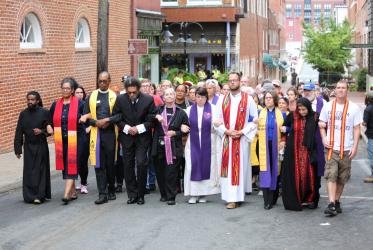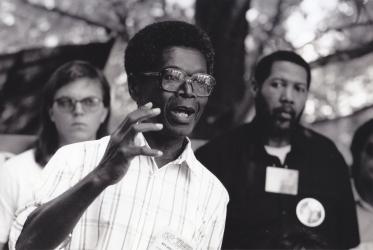The World Council of Churches (WCC) Commission of the Churches on International Affairs presented a webinar on 5 November entitled “Racism, Xenophobia and Discrimination in the European Context.”
WCC general secretary Rev. Dr Olav Fykse Tveit discussed the importance of addressing racism in all aspects of our lives, as individuals and as churches.
“It is part of the common European reality we live in today that we see unfinished theological discourse about what racism actually means,” said Tveit. “Racism as a social reality, also as a kind of hidden or open ideology, all of this still exists as significant parts of our European cultures or countries.”
Prof. Anthony Reddie, secretary for Europe for the Council for World Mission, spoke about how the significance of “whiteness” in Europe goes all the way back to the holy Roman empire and Charlemagne. “Christianity isn’t white,” he said. “What you then have is a construct about who belongs and who doesn’t.”
Radha Govil, a lawyer and an expert on statelessness for the United Nations Refugee Agency, reflected on the importance of nationality, where statelessness comes into play, and how statelinesses can be used to discriminate against people.
“The origins of the legal definition of a stateless person also find their root in European history, in the history of World War II,” said Govil. “There are more than 50,000 stateless people in Europe.”
The webinar was part of a series of eight regional webinars that are exploring the various causes and manifestations of racism, xenophobia, afrophobia and racial discrimination in different parts of the world; identifying common threads across regions; and finding opportunities for collaboration.
Watch previous regional webinars on racism with focus in Asia , North America, Caribbean and Africa







